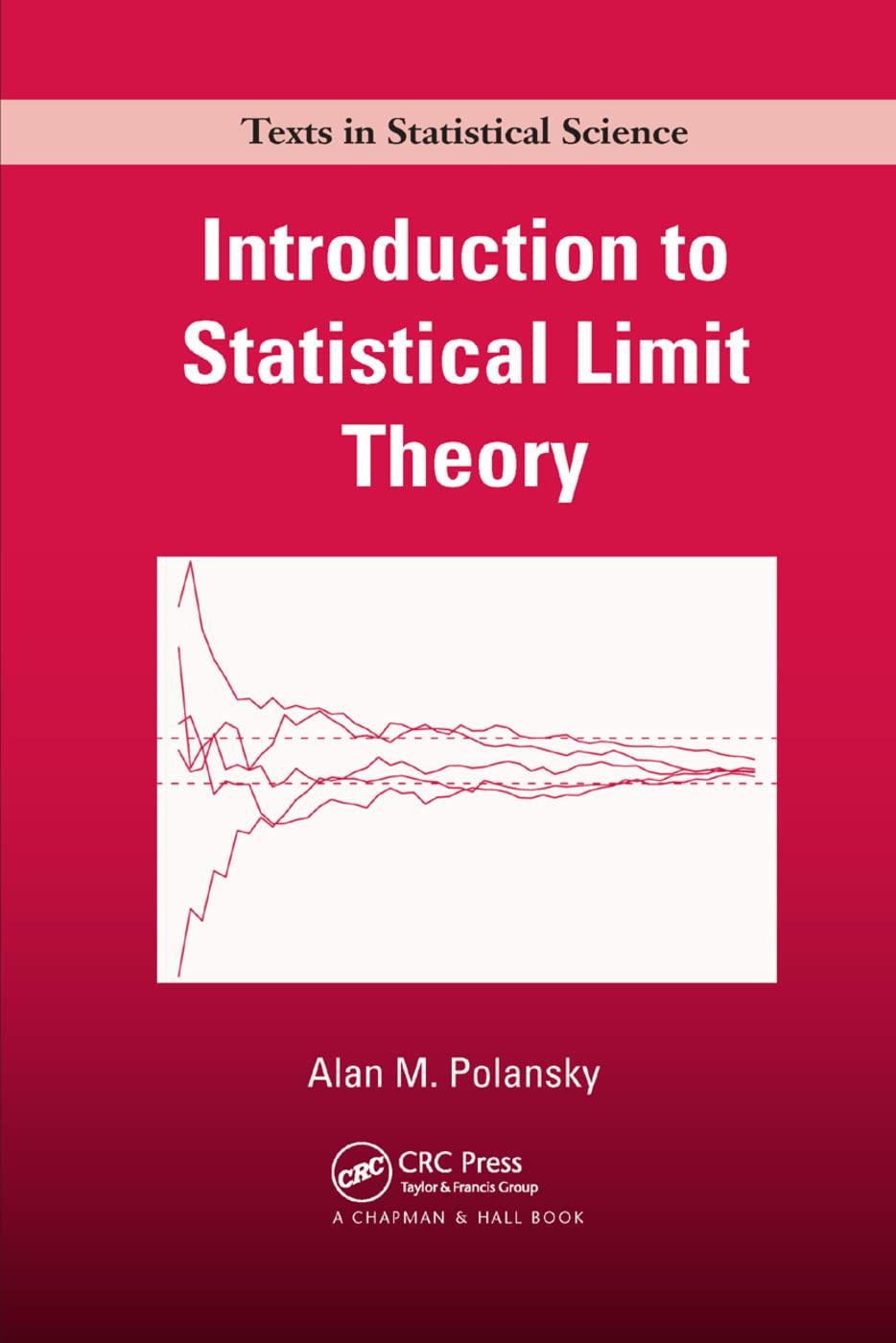Let (X_{1}, ldots, X_{n}) be a set of independent and identically distributed random variables from a distribution
Question:
Let \(X_{1}, \ldots, X_{n}\) be a set of independent and identically distributed random variables from a distribution \(F\) with continuous and bounded density \(f\), that is assumed to be symmetric about a point \(\theta\). Consider testing the null hypothesis \(H_{0}: \theta=\theta_{0}\) against the alternative hypothesis \(H_{1}: \theta>\theta_{0}\), by rejecting the null hypothesis when the test statistic
\[B=\sum_{i=1}^{n} \delta\left\{X_{i}-\theta_{0} ;(0, \infty)ight\}\]
is too large. Let \(\alpha\) denote the desired significance level of this test. Without loss of generality assume that \(\theta_{0}=0\).
a. Show that the critical value for this test converges to \(z_{1-\alpha}\) as \(n ightarrow \infty\).
b. In the context of Theorem 11.15 show that we can take \(\mu_{n}(\theta)=F(\theta)\) and \(\sigma_{n}^{2}=\frac{1}{4} n\).
c. Using the result derived above, prove that the efficacy of this test is given by \(2 f(0)\).
Step by Step Answer:






